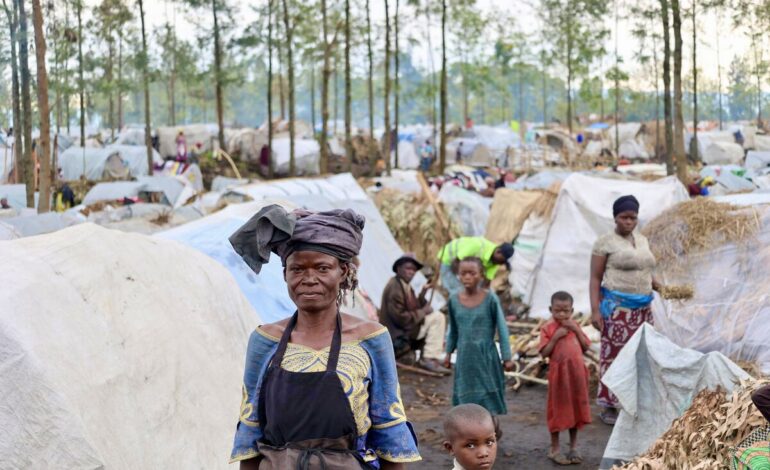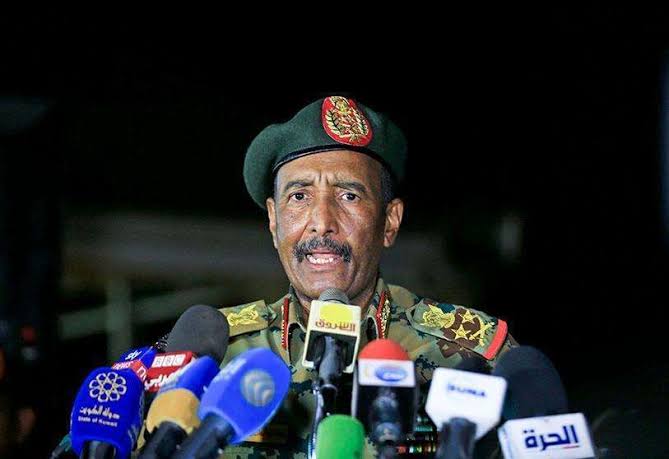
Faith Nyasuguta
The Congolese authorities have acknowledged challenges in organizing elections in the eastern regions due to recent outbreaks of violence.
President Felix Tshisekedi emphasized on Friday that the top priority is the resettlement of displaced people, a task further complicated by the resurgence of violence.
“I accept it, albeit with difficulty, but I accept.”
“We are continuing to make efforts to bring our people back to their homes, to their villages,” the president said in an interview recorded earlier but only publicised on Friday by Radio France International and France 24 TV.
Electoral authorities in the Democratic Republic of Congo had come to accept the likelihood that regions in the east, experiencing a resurgence of violence, would be omitted from the scheduled December 20 elections.
Despite earlier assurances from Independent National Electoral Commission (Ceni) Chair Denis Kadima, it is evident that eastern areas like Masisi, Rutshuru, and portions of Nyirangongo in North Kivu will be excluded due to a new conflict hindering voter registration. Ceni acknowledged a significant backlog in this regard.
Kadima’s fears, first expressed at the very beginning of his mandate, have been confirmed. When he took up the position, he often cited security constraints as a major obstacle to successful elections.
Far from the troubled provinces of Kivu, Kwamouth, in Kwango province, and the surrounding area, some 100 kilometres from the city of Kinshasa, are also likely to miss the election.
In these territories, a dispute over agricultural royalties has led to a bloody conflict between the communities, causing militia incursions as far as the outskirts of Kinshasa. The fighting has resulted in nearly 300 deaths over the past year, according to Congolese officials.
According to Kadima, Ceni is ready to carry out voter registration in 10 days if the situation improves.
No one is hiding their doubts about the participation in the elections of the Congolese from Masisi, Rutshuru, Nyirangongo and Kwamouth. The First Vice-Chairman of the Independent National Electoral Commission, Bienvenu Ilanga, publicly expressed his doubts this week.

“For Masisi and Rutshuru, everything will depend on developments in the security situation in our country. So, we’re going to wait until the conditions are right for us to get moving, if need be”, said Jules Mugiraneza, an MP in the outgoing National Assembly.
Mugiraneza expressed the willingness of the local people to participate in the elections.
The people, he added, had a “deep and legitimate desire” to be registered like other compatriots.
The government in Kinshasa, however, remains optimistic.
“Every effort is being made to ensure that Congolese living in the territories controlled by the M23 rebels (Masisi and Rutshuru) and the Mobondo Kwamouth militia (Mai Ndombe) can take part in the electoral cycle,” said Patrick Muyaya, the government spokesman.
During a recent government meeting, President Félix Tshisekedi directed Prime Minister Sama Lukonde and the Ministers of the Interior and Defence to secure electoral operations in the territories of Kwamouth, Masisi, and Rutshuru.
However, as the electoral campaign is about to begin, the reality is that almost all the war-displaced individuals, numbering nearly 7 million according to the International Organization for Migration, won’t be participating in electing their candidates.
A record 6.9 million people have been forced to leave their homes inside the Democratic Republic of Congo (DRC),” said the United Nations Migration Agency on October 30.
Meanwhile, the DRC is also struggling to find an international partner who will help pin down the rebels.
President Tshisekedi, having grown frustrated with the East African Community Regional Force now wants the mission to leave by December 8.
Instead, he is banking on 500 troops the Southern Africa Development Cooperation recently pledged to deploy.
The southern Africa bloc has, however, not announced definite dates for the deployment.
The dilemma comes as the UN mission, known as Monusco, prepares to begin departure from the country starting December.
RELATED:




